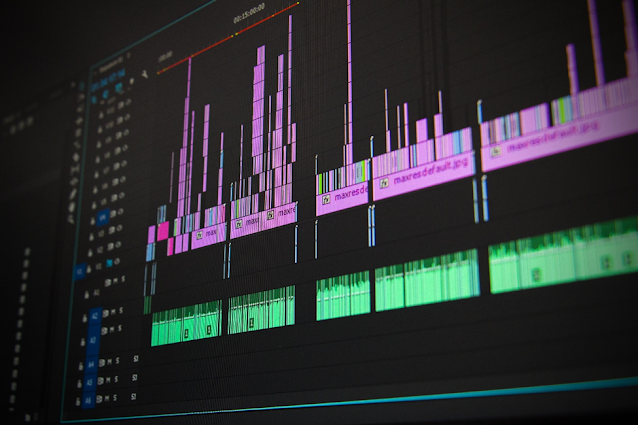6 Stages of Music Production That You Must Know
Music production today is far from anything like it used to be in the old days. You can automate effects, mix up genres and create something that works well for the audience. However, just because there are no boundaries doesn't mean you should have no rules for producing music.
If you're
a musician who's just starting, you just landed right! We've compiled an
interesting guide for you. We'll take you through 6 key stages of music production. Regardless of the type of music you produce, what we share here
will help you organize the music process in your brain.
Songwriting
The first
stage of music production is songwriting. Free yourself from all sorts of
distractions. It's time for an experiment. Allow your mind to work freely. You
can brainstorm ideas with free association. It's great to have good lyrics, but
good lyrics on their own are not enough. Your song may be perfect from a
literary viewpoint. However, your lyrics must bond with the music when the
vocalist sings.
Take an
example of a good song as a pathway littered with surprises. A key element of
quality music is attracting the reader and making them want to listen more. It
should be so good that the listener is fully immersed in it and pays careful
attention to the composition. You want to catch their attention throughout,
from the start to the middle to the end.
The melody
must also perfectly fit in harmony. You must have noticed that quality music
arouses you to listen more by creating a pattern. Before a transition, you're
already too tempted to groove to the pattern. Transitions are smooth, and you
tend to enjoy the rhythm.
The old-school
way of songwriters is to sit with their guitar and notebook while they compose
a pleasant tune. A rule of thumb for knowing whether the composition is heart-touching
or not is to ask a couple of simple questions.
Are you grooving
to it?
Is the
tune magical enough to play in your head after the music stops?
Arranging
The arrangement
stage is often neglected by most musicians. Ideally speaking, it's the
arranging stage that defines how interesting the song is. A repetitive tune or
disturbing pattern can result in the creation of music full of distaste.
Also, the
order of instruments playing in the background and transitions in the following
sections are part of the arrangement stage. Arranging requires you to be
careful as a musician and listen to your tune on loop to identify anything that
is too repetitive. Make sure to have a buildup. Adding all instruments at once
would be nothing but a pain to the ears.
You might
want to mix it up a bit. There are endless possibilities. Instruments could and
should be used to their best to charge you up with energy. A good practice for
arranging is to listen to the song and figure out what sections make you groove
to the music. Separate them and continue listening to them. Extracting the best
part will allow you to give the listener music pleasing to the ear.
Tracking
Writing a
song and composing are essential parts of music production. But your song
exists in only thin air if you haven't recorded it yet. A recording is at the
core of music production. We call it tracking in music production.
Playing
live, too, may be entertaining for the audience. But, when the performance is
over, everything vanishes. The art of tracking is what blows life into music
and turns it into a tangible commodity. Hence, recording music in a digital
form only will provide you the freedom to listen to it whenever you want.
When you
push the record button, make sure to give your best. Play instruments and sing
as you can feel the music.
Editing
It is the
stage of music production that requires you to be laser-focused. Songwriting
and recording are like push, whereas editing is like pull. You cannot do both
simultaneously. Therefore, it's better to focus on one step at a time. Also,
know that editing is secondary. Enjoy your composition and recording. Plus, digital
editing has made the editing process easier than ever. So, you can always edit
at a later stage.
Mixing
It is the stage
where you'll need a lot of energy. So, it's better to get your creative juices
flowing. Right after editing, you can explore several possibilities to see what
new you can add to turn your composition into a masterpiece. Mixing is more
about discovering the intention of the music. It's good to check if your
composition has depth and motion. Quality mixing requires rigorous practice and
a lot of experience.





Comments
Post a Comment